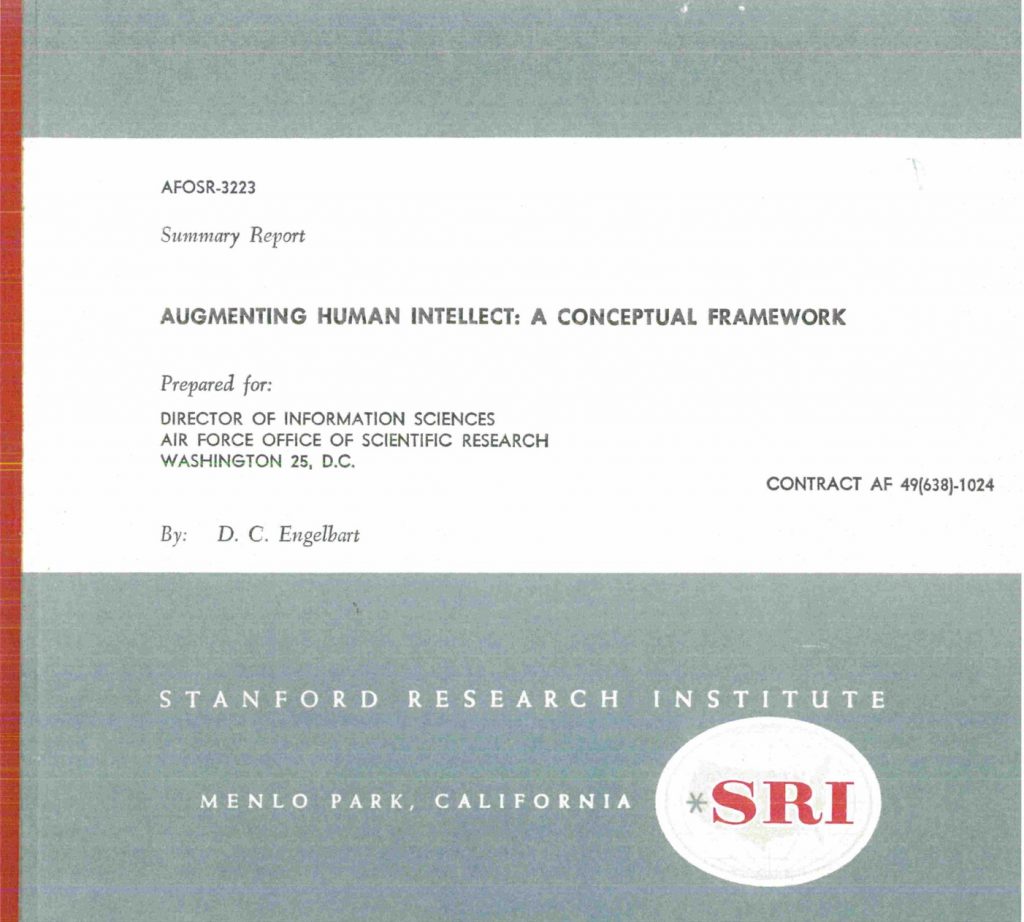We invite you to join us in engaging with Doug Engelbart’s visionary research report and manifesto: Augmenting Human Intellect: A Conceptual Framework. Read, respond, act.
Join the ongoing self-guided conversation, initially launched in Feb 2019, as a facilitated exploration. You can follow the week by week format, or dive in on a free range basis.
Together, we are “augmenting” this document using hypothes.is, a platform for web-based annotation and discussion. Other online events and resources will help provide even more food for thought and conversation. In the spirit of Doug’s original design, we want the study of intellectual augmentation to be an example of intellectual augmentation. In a word, recursive!
Here is how Doug Engelbart described the work of intellectual augmentation.
By “augmenting human intellect” we mean increasing the capability of a man to approach a complex problem situation, to gain comprehension to suit his particular needs, and to derive solutions to problems. Increased capability in this respect is taken to mean a mixture of the following: more-rapid comprehension, better comprehension, the possibility of gaining a useful degree of comprehension in a situation that previously was too complex, speedier solutions, better solutions, and the possibility of finding solutions to problems that before seemed insoluble. And by “complex situations” we include the professional problems of diplomats, executives, social scientists, life scientists, physical scientists, attorneys, designers—whether the problem situation exists for twenty minutes or twenty years.
See more information about this project, learn how to get started annotating with us, and how to sign up for email updates on this project.








